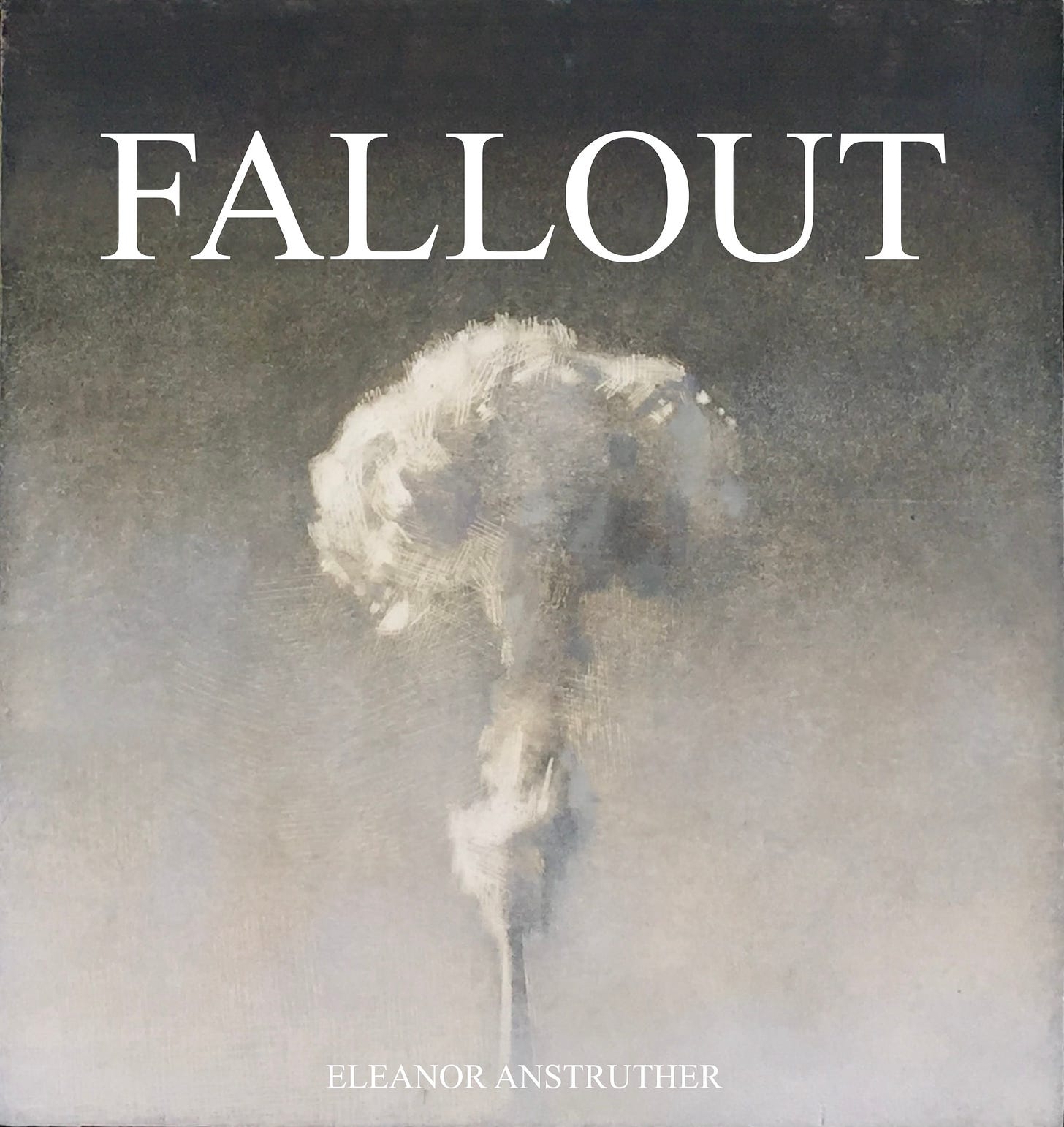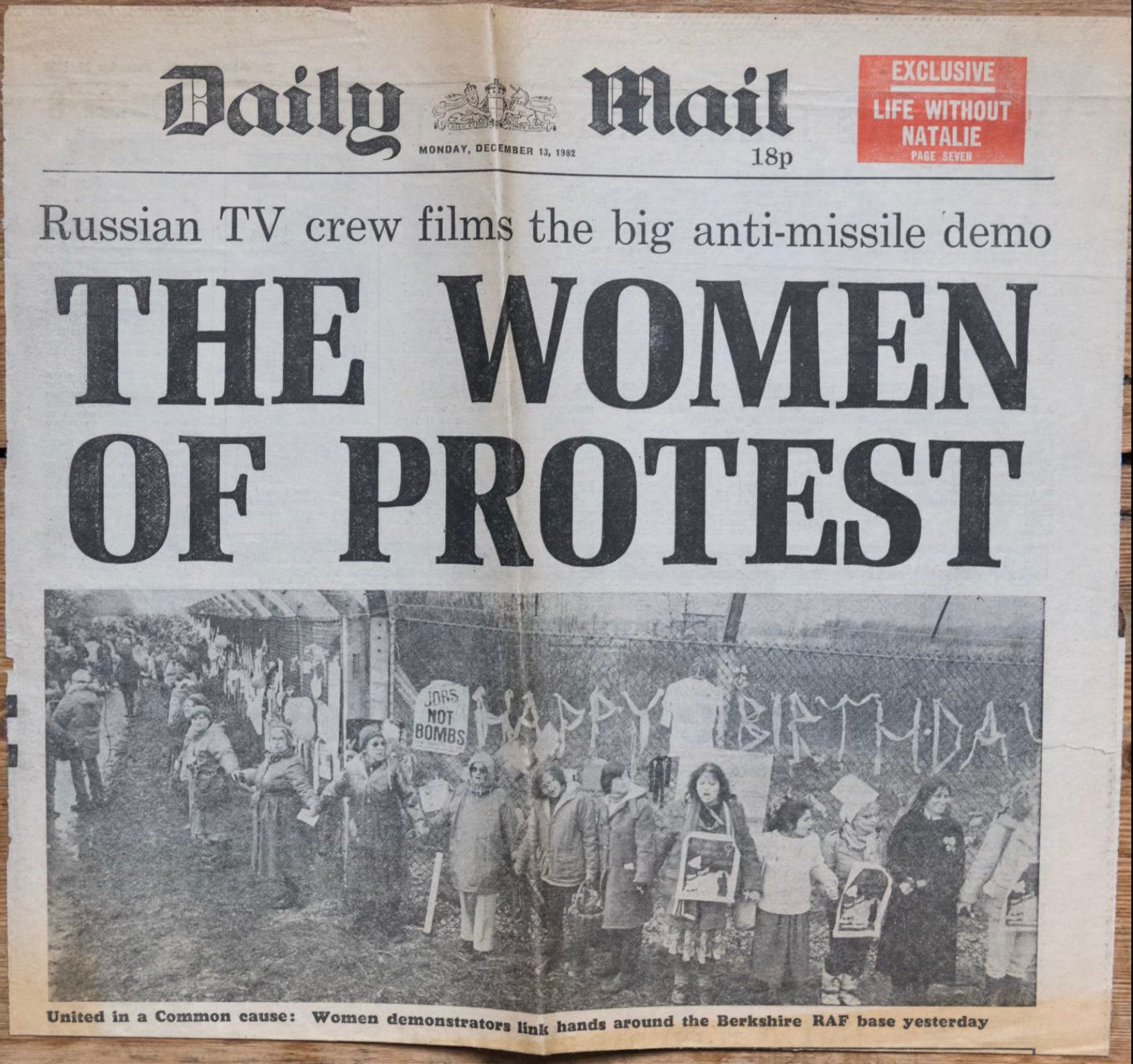Bridget was in bliss. She’d lost Kate and Peggy but everyone felt familiar, like she could go up to anyone and everyone would be nice, or at least listen, or at least not treat her like a stupid child. They were so cool, all of them, even the old grannies who in the outside world would have been wheeling tartan trollies down the high street and going on about their veins, here they had mud under their nails and even the lines on their faces were beautiful, as if Bridget had never seen real beauty before. The old woman who looked like Granny Reynolds made Bridget a cheese sandwich at Blue Gate kitchen; a tent with a table and crates filled with open packets of tea and bread and a margarine tub. There was a bucket with soapy water, she washed a knife and spread mayonnaise and cut hunks of cheddar and handed it to Bridget. She didn’t make a fuss about it, she just handed her the sandwich like they knew each other. When she spoke, she had a strong Irish accent like Bridget had heard on the news.
“You here on your own, love?”
Bridget nodded. She could say anything here. She could be anything.
“Did you hitch?”
She had to be at least over fifty, but she was talking to Bridget like they were equals.
“Are they really going to store nuclear missiles?”
“Do you see those silos?” The woman pointed through the fence, beyond tarmac to three huge mounds caged in scaffold. “They’re to be stored in there.”
“My dad says it’s to stop the Russians.”
“You can’t stop war with war. It’s like fucking for virginity.”
Bridget didn’t know whether to store that phrase for future use or shout it out loud, she was that shocked a granny had said, Fucking.
The woman carried on, “If a fella’s holding a gun, he’s more likely to get shot. If you’re pointing a cruise missile at Russia, they’re going to point their missiles at us and boom, one wrong word, one bad day, one narcissist psychopath despot tyrant waking up on the wrong side of bed and that’s that. Toast for the lot of us. And no one asked, did they. No one said, This all right with you is it, that we put you in danger? That we call it protection and spend your money so we can play our little games? They aren’t building these for defence,” she nodded at the silos again. “They’re building them to make small men feel big.” She smiled at Bridget. “Will you be staying?”
Bridget wanted to ask what a narcissist psychopath despot tyrant was but instead she said, “How does everyone know this stuff?” As if they’d been handed a booklet like Protect & Survive but this one had passed invisibly, hand to hand across, the land to women everywhere.
“We act with our hearts,” said the Granny Reynolds look-alike who was so switched on and alive it made Bridget think that every other granny must be drugged.
The day had faded almost completely when Bridget left the fire at Blue Gate and headed back to Yellow Gate where the cars were parked. By the time she got there, torches were being lit and handed out to the roar of voices. A string of fairy lights at the edge of a tarpaulin tent lit outlines of swaying women, ten deep at the fence, pulling at chain link, concrete poles giving up as the fence gave way and bodies blacker than night in uniform who crushed and crowded, pulling the women back; it was hard to see but in the cry and writhing encroaching from the forest, the lights of their camp, the torches held above heads, the slash of chain link fence felt deeper in its cut than in daylight and Bridget rushed upon it too, allowed and alive and unwilling to stop, emboldened and embraced by the immediate mass of song and twisting arms, the mess of life a wave against this flat black line, the void beyond like air ripped out, life zapped and laid with tarmac, a watchtower built to watch over its death in case life should spring up again.
She picked up a dropped torch, held it to the fire to relight it and then above her head, to see better this greatest work of art; away down the fence she ran, away from the riot to see it lit better by flickering flames, almost beautiful, decorated as it was by thousands of hands twisting all day the ribbons and wool into metal hardness, making it soft and uneven. What were friends here where she was free and not alone? What was the playground to this forest floor? Her mum nagging, her dad criticising, Friends won’t drop out of the sky, you know, as if he had any.
She used to think that’s where he went on a Saturday night, out with his friends while Bridget and her mum got ready to argue over the remote. Paul sent off to bed, Bridget and her mum snuggled up on the sofa, a tin of biscuits and The Dukes of Hazard. He was never back before she went up to bed, her mum always said, Off you pop, I’ll wait up for your dad. She thought it was the most normal thing about him, like dads were supposed to go out and get pissed on a Saturday night with their mates and leave the wife at home with the kids. She used to think that’s what happened when you got married. But that wasn’t what he did. Not unless all his mates liked wearing makeup.
It was bonfire night and her mum had promised Paul they’d go to the fireworks which meant leaving at the same time as the Tube was on which she couldn’t miss, there was no way, everyone would be talking about it at school, even if she didn’t have any friends she could still say she’d seen it and anyway, all the stupid girls at school weren’t into that kind of music except The Police and only because of Sting. So her dad had let her tape it, and promised the VHS machine would work, and they’d all put on coats and hats and gone to the stupid fireworks at Hampton Court and Paul had burnt his hand on a sparkler trying to write, Bridget smells in the sharp night air. After they’d got back her mum had said it was too late to watch it now, she could watch it tomorrow, and anyway, The Gentle Touch was on.
All the next day the VHS tape had sat in the recorder, but her dad had said she couldn’t be inside on a day like that, and her mum had made her take Paul to the park. So it wasn’t until Saturday night after Paul had watched his shows, and her mum had watched her shows, and her dad had gone out that she finally had the TV to herself to watch the first ever Tube with Paula Yates looking so pretty even though she was pregnant apparently and Muriel Gray looking so cool, Bridget definitely wanted to be her. There was an interview with Paul Weller and they played Town Called Malice live on air and after it had finished she’d rewound the tape and watched it again from the beginning.
She’d fallen asleep in front of it, the lights on, the telly whining. She’d not heard her dad come in, but she’d woken suddenly to see him in the doorway, about to turn off the lights as if he hadn’t seen her, only did, suddenly, and he didn’t look like her dad at all. He had on the same jumper and trousers he’d gone out in, but he was wearing lipstick. And eye shadow.







Lipstick and eyeshadow.... but what got me here is that "every other granny must be drugged." Brilliant writing and so much relevant to our times.
"the immediate mass of song and twisting arms, the mess of life a wave against this flat black line, the void beyond like air ripped out, life zapped and laid with tarmac, a watchtower built to watch over its death in case life should spring up again." Such a gorgeous sentence (or rather, part of one). Brilliant.